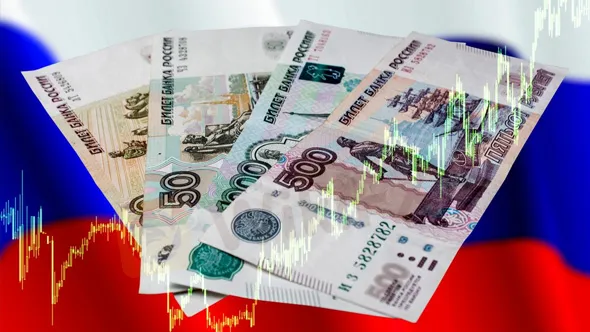简体中文
繁體中文
English
Pусский
日本語
ภาษาไทย
Tiếng Việt
Bahasa Indonesia
Español
हिन्दी
Filippiiniläinen
Français
Deutsch
Português
Türkçe
한국어
العربية
Russia Central Bank Cuts Key Rate for Third Time on Stronger Ruble
Abstract:The Bank of Russia Thursday lowered its key interest rate to 11% from 14%.

Russia's central bank cut its key interest rate for a third time since early April as it sought to steady a strengthening ruble and support a faltering economy.
The Bank of Russia Thursday lowered its key interest rate to 11% from 14%. Following two rate cuts in April, that largely reverses a doubling of the key rate in the immediate aftermath ofRussia's invasion ofUkraineand the Western sanctions that it provoked.
The initial hike to 20% from 9.5% in late February was intended to support a rapidly weakening ruble and limit a surge in inflation as imports became more expensive. But the ruble has since regained lost ground and made some gains asRussia's foreign currency revenues from exports of oil and gas have surged thanks to higher prices.
“Inflationary pressure eases on the back of the ruble exchange rate dynamics as well as the noticeable decline in inflation expectations of households and businesses,” the central bank said in a statement.
But while the currency and the country's financial system have stabilized, the outlook for the economy is gloomy, with Western sanctions limiting the country's ability to import needed goods, services, parts and equipment. The United Nations last week said it expectsRussia's economy to contract by 10.6% this year.
“External conditions for the Russian economy are still challenging, considerably constraining economic activity,” the Bank of Russia said. For more Forex news, please download WikiFX- the Global Broker Regulatory Inquiry APP.
Disclaimer:
The views in this article only represent the author's personal views, and do not constitute investment advice on this platform. This platform does not guarantee the accuracy, completeness and timeliness of the information in the article, and will not be liable for any loss caused by the use of or reliance on the information in the article.
Read more

BaFin Halts USDe Token Issuance, Citing Serious Compliance Failures
The German regulator BaFin has frozen USDe token issuance amid compliance issues. What led to this drastic move, and how does it impact the market?

IMF Adds Bitcoin and Digital Assets to Global Economic Statistics for the First Time
IMF’s inclusion of digital assets in economic statistics redefines how nations track and assess the crypto market’s impact.

Big News, Big Moves: Should You Trade During Major Announcements?
Whether it’s central bank decisions, economic data releases, or geopolitical developments, such major events can trigger extreme price swings within seconds. For traders, the temptation to capitalise on these moves is undeniable. But is it a wise strategy, or does it carry unnecessary risk?

FINRA Fines Wall Street Access $125,000
Wall Street Access (WABR) has recently agreed to pay a fine as part of a settlement with FINRA.
WikiFX Broker
Latest News
Why Are Financial Firms Adopting Stablecoins to Enhance Services and Stability?
Experienced Forex Traders Usually Do This Before Making a Lot of Money
Octa vs XM:Face-Off: A Detailed Comparison
When High Returns Go Wrong: How a Finance Manager Lost RM364,000
Bridging Trust, Exploring Best—WikiEXPO Hong Kong 2025 Wraps Up Spectacularly
Fidelity Investments Explores Stablecoin Innovation in Digital Assets Sector
Interactive Brokers Expands Crypto Trading with Solana, XRP, Cardano, and Dogecoin
SEC Ends Crypto.com Probe, No Action Taken by Regulator
Why More People Are Trading Online Today?
Gold Surges to New Highs – Is It Time to Buy?
Currency Calculator







